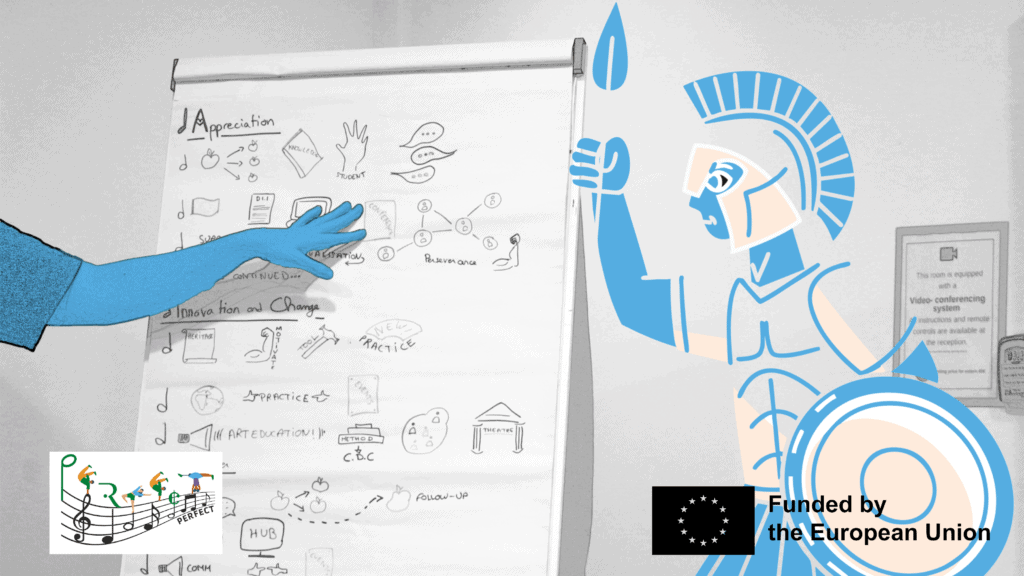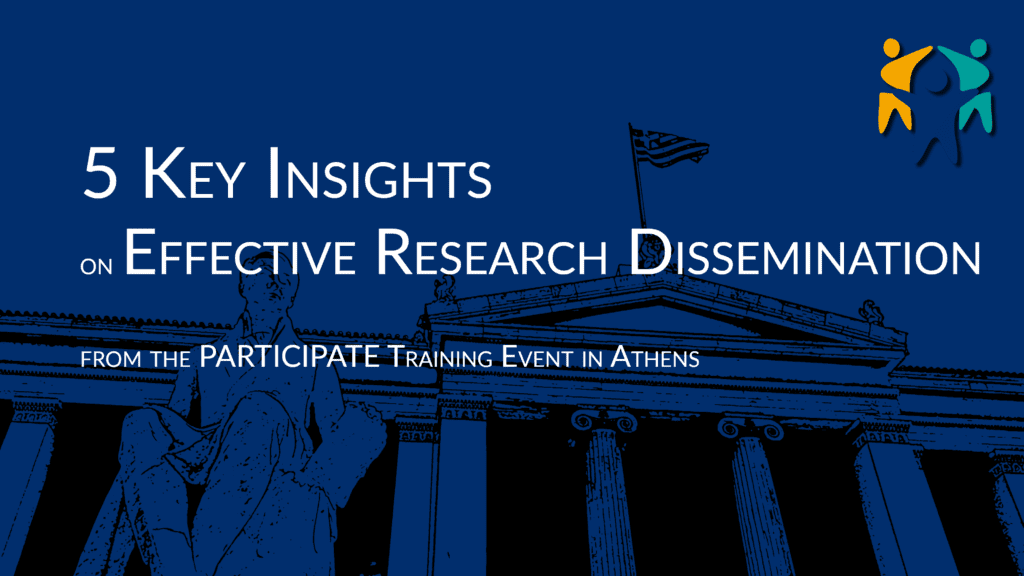The International Parents Alliance’ Parent Summit 2024 – Two inspiring days of joy exploring education
International Parents Alliance’s Parent Summit has been a spectacular experience, bringing together like-minded people from four continents in a very special environment and for a very special purpose.

Table of Contents
The Setting at the International Parents Alliance Summit
Our location was the Amonashvili Estate, the headquarters of the Humane Pedagogy initiated by Shalva Amonashvili decades ago and now led by Paata Amonashvili. The estate has expanded over time and is now known as Mzianeti, “Sun City,” which comprises a set of imaginative buildings including a “fortress,” acting as town hall, a “pyramid,” a refectory, and football pitch, and an incredibly diverse garden.
The Estate’s scope has likewise expanded to include training for parents and children alike, which culminate in a special 9-day course that takes place in the summer months. During these courses, children up to 18 become citizens of Sun City, elect their own mayor, who is himself a child, and can work for part of the day to gain “dari,” Sun City’s wooden currency. They can even set up their own business, provided they submit a proper handwritten application to the Mayor.
Children are also responsible for their adults and “provide” for them with their own work. In the afternoon, children are free to engage in a variety of activities ranging from arts to science, while parents train with the Human Pedagogy instructors. Our International Parents Alliance’s Summit couldn’t have asked for a better stage.

The Arrival Experience at the International Parents Alliance Event
Participants started to reach the Amonashvili Estate as early as the 23rd of October, for logistical reasons. Those who arrived at night left Tbilisi airport on transport set up by the Amonashvili estate. Soon the city lights disappeared into the dark, intermingled with the road signs in the unique Georgian script and little dim-lit roadside shops selling fruit, vegetables, and local crafts. Those lucky enough to arrive in the morning were treated with the breathtaking view of the snow-capped, imposing Caucasus mountains and the multicolored foliage of autumn forests under crisp, blue skies.
The Day Before: Exploring Tbilisi and the SILENT Multiplier Event
On the 24th of October, we set out early in the morning in the company of David, a knowledgeable and enthusiastic guide, for a tour of the Georgian capital.
Over the course of the two-hour drive, David discussed anything from history to local soil composition in great detail and with a good measure of humor, while at the same time managing to impress upon us the notion that two things are very much cherished in Georgian culture: tolerance, and wine. According to David, tolerance is embedded in Georgian culture as a result of its being at the crossroads of East and West. For a portion of our journey to Tbilisi, we traveled on the actual track of the old Silk Route.
On the other hand, wine is a staple of Georgian life, with traditional production methods passed from generation to generation. Tbilisi itself is surprisingly lively, a bustling city blending Western and Eastern influences, and surmounted by a giant statue holding a sword and a cup of wine, as a stark memento to both enemies and friends. As part of our tour, we paid a visit to the Peace Cathedral, a church so dedicated to inclusion and interfaith dialogue that a mosque and synagogue have been built within the same compound.
We then reached the location for the Multiplier Event of Project SILENT, one of the many supported by the International Parents Alliance, and engaged in a lively discussion on the scope and results of this project aimed at supporting the hearing families of deaf children.

Day One at the International Parents Alliance Parent Summit
The first day of the Summit opened with the inspiring testimony of Paata Amonashvili and the veteran Shalva, who at the age of 93 gave a passionate speech about the value of education and the need for educators to constantly work on themselves. Paata stressed the Amonashvili Academy’s practice of responding to problems and crises with acts of love and beauty. The words of the International Parents Alliance Director Eszter Salamon PhD set a positive and determined atmosphere.
Parenting and Education in Digital Realities
The first part of the day, Parenting and Education in Digital Realities, started with a keynote speech by Luca László, one of the Ph.D. candidates from Project PARTICIPATE. The project’s aim is to train a new generation of Early Stage Researchers (ESRs) with transferable multidisciplinary and intersectoral skills necessary to work with parents, youth, teachers, and other professionals to more effectively prevent and reduce cyberbullying across Europe. The presentation discussed the defining characteristics of bullying and the results of the scoping review for her own unique research on the role of teachers and parents in the emergence of bullying behavior in children.
Participants took part in a lively workshop that challenged them to identify causes and possible solutions with the help of Anastasiia Petrova, Luisa Morello and Giorgia Scuderi, themselves PARTICIPATE’s Ph.D. candidates, before moving into an engaging presentation of the results of Project Supercyberkids, aimed at fostering cybersecurity and resilience through games, complemented by a dedicated workshop.

Health and Well-being: A Priority for the International Parents Alliance
After lunch, participants tackled the theme “Well-being and health – a main concern of families.” They familiarized themselves with and explored the content of two additional projects: DRONE, which aims to provide training to teachers and school leaders to promote digital literacy and combat the spread of disinformation among adolescents, particularly from vulnerable groups, and BIO-STREAMS, whose purpose is addressing childhood obesity through improved data usage, personalized behavioral pathways on nutrition and activity, and stronger liaisons among research, healthcare, and communities.
The workshops were led respectively by Aristos Protopsaltis, PhD., and researchers from the University of Maribor, Slovenia.
After a short coffee break, Judit Horgas PhD took center stage and led a high-energy workshop on linking school learning to family learning, combining insights and resources from Project PERFECT, dedicated to developing teaching/learning strategy based on collaborative cultural production and intercultural exchange, and Project BioBeo, which aimed to create an education program to enhance engagement across society regarding lifestyle, circularity, and bioeconomy.
Lastly, participants were involved in a dedicated workshop based on the concept and premises of Project KITCHEN ADVENTURE, which aims at strengthening the adoption of plant-based solutions in everyday diet and at transforming cooking into a family activity in which parents and children can bond and grow together.

Day Two: A Democratic Focus at the International Parents Alliance Parent Summit
The second day of the International Parents Alliance Parent Summit was shorter but by no means less action-packed. First on the list was a short presentation of Project DEMOCRAT, whose aim is to strengthen liberal democracy in the European Union (EU) by supporting its embedding and sustainability through participatory redesign and implementation of innovative and context-sensitive Education for Responsible Democratic Citizenship (EfD) curricula and learning methods.
Right after the presentation, participants engaged in a world-café activity based on thought-provoking questions on the adoption of democratic policies in schools, including barriers and necessary resources. In the final section, IPA’s Director Eszter Salamon introduced the results of a Brookings-led project and highlighted the fact that when it comes to the education system, the voice that is most lacking from the vast majority of discussions is the voice of parents, who at the same time are a critical factor to translate any education-related proposal into reality.

Parting ways – the Summit Ends
With the heartfelt words of Paata Amonashvili exhorting participants to act in the best interest of children and Eszter Salamon summarizing two days of intense activity, the Parent Summit 2024 came to an end. As participants exchanged greetings before parting ways, a lingering, palpable feeling of happiness and fulfillment filled the air, together with the promise of meeting again soon, at another time and in another place, for another chapter of our story.











